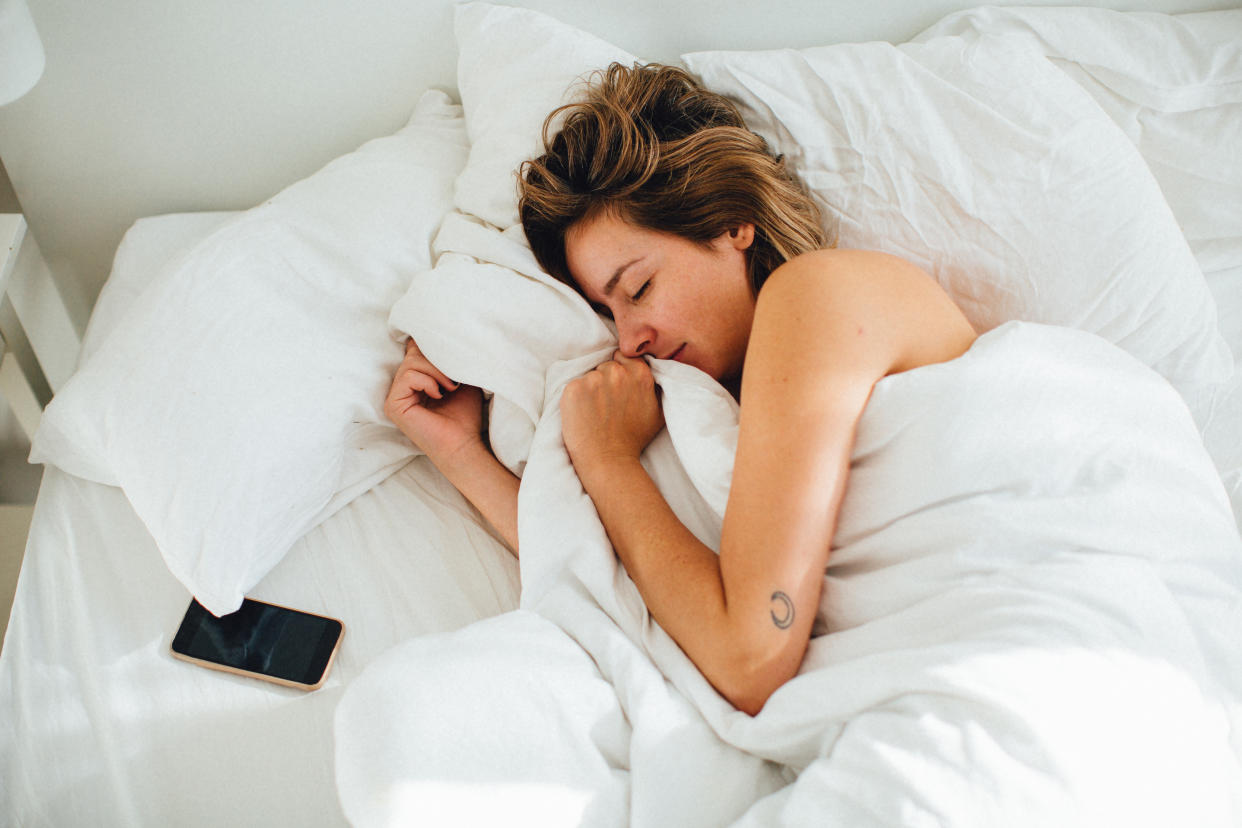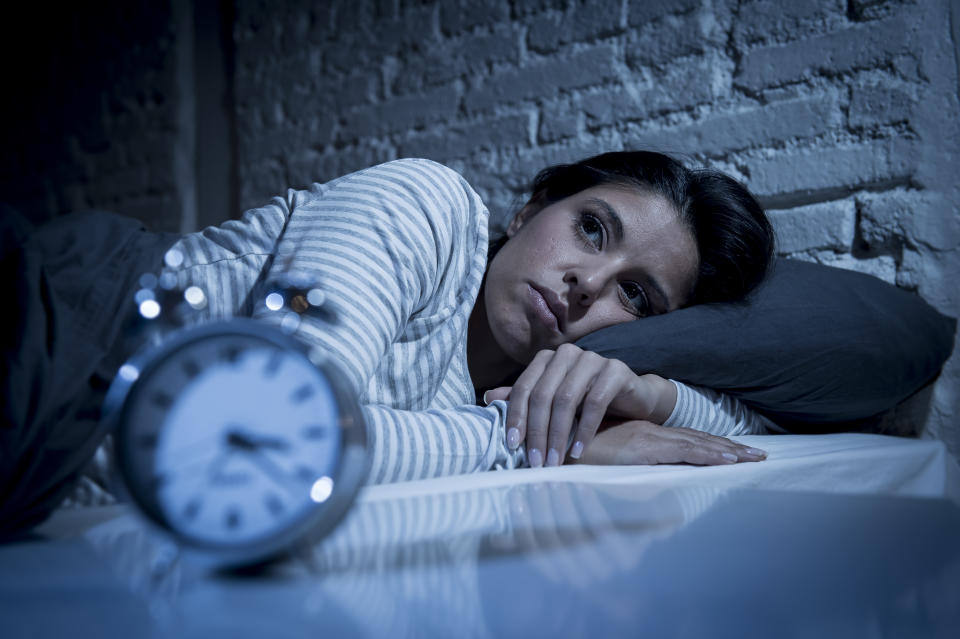Does sleeping next to our phone fuel insomnia?

With many of use relying on our phones for our morning alarm, mobiles tend to have a designated spot on a bedside table.
While it may sound harmless, having a smartphone to hand could cause insomniacs to scroll social media into the early hours.
The unlucky ones who frequently wake at 2am may also check their emails, leaving their mind whirling about that pressing work deadline.
Read more: Why you should never sleep with the heating on
Nearly a third (31%) of UK adults are thought to suffer from insomnia.
The situation is similar in the US, where 30% of people have “sleep disruption”.
It has been well reported the blue light emitted from phones throws our body clock out of whack.
Light comes in a range of wavelengths, with those on the blue spectrum known to boost attention and reaction times.
While this may be beneficial during the day, it is less helpful when trying to nod off.
Harvard scientists exposed participants to 6.5 hours of blue or green light.
Results suggest the blue light suppressed the volunteer’s production of the sleep-hormone melatonin for around twice as long.
It also shifted their body clock by three hours compared to the green light’s 90 minutes.
Read more: How to sleep with a blocked nose
Far from just feeling fatigued the following day, prolonged exposure to light at night has been linked to everything from obesity to certain cancers.
“Our energy tends to run in 60-to-90 minute cycles and the cycle just before we go to bed is key to getting a good night’s sleep,” Dr Nerina Ramlakhan, sleep expert at Silentnight, told Yahoo UK.
“When light levels drop in the evening, our circadian [body clock] timer switches on and stimulates the production of melatonin.
“The use of tech before bed disrupts this natural process.
“Screens on phones emit blue light, which suppress the production of melatonin and stimulates the production of the chemical dopamine, which makes us feel alert and ‘switched on’”.
Far from blue light being the only culprit, Dr Ramlakhan stresses social media cannot be underestimated.
“Social networks are definitely causing a heightened feeling of FOMO [fear of missing out], particularly with the younger generation who are so used to seeing their social lives played out online”, she said.
“With Snapchat, snaps are only there for 24 hours and then they are gone, making it all the more tempting to keep checking the app so as not to miss out.
“It’s easy to see why this habit is creeping into bedtime routines.”
Dr Ramlakhan recognises it may be “unrealistic” to banish phones from the bedroom, but urges people strive for a “tech-life balance”.
Read more: What are blue light blocking glasses and do they really work?
“As a sleep deprived nation we’d do well to limit the amount of time we are spending on social media,” she said.
“Try to stop scrolling 60-to-90 minutes before bedtime.
“This will allow your brain to wind down and lead to deeper, more restorative sleep”.
Dr Irshaad Ebrahim, from The London Sleep Centre, is stricter.
“Sleep is a state that works best without stimulation”, he told Yahoo UK.
“Nature has provided our brain and body with a period of rest, rejuvenation, growth, repair and maintenance that works best when not interrupted or stimulated by external factors.
“We should restrict our interaction with technology to our waking hours and not interact at all during the sleep period.
“Blue light-emitting devices have no place in the bedroom or near the bed during the prescribed sleep time”.
Some research suggests, however, sleeping next to our phone may not throw off sleep.
A study by the University of Manchester implies mice found blue light more “restful” than a yellow hue.

Is sleeping next to our phone a cancer risk?
As well as potentially disturbing our shut eye, some worry mobile phones may cause cancer, with sleeping alongside them increasing that exposure.
Luckily, these fears appear to be unfounded, with Cancer Research UK stating “the best scientific evidence shows that using mobile phones does not increase the risk of cancer”.
The radiation phones emit is “very weak” and “does not have enough energy to damage DNA”.
The Danish Study, led by the Institute of Cancer Epidemiology in Copenhagen, linked billing information from more than 358,000 mobile phone subscribers with brain tumour rates.
The scientists found no association between phone use and the brain tumours glioma, meningioma or acoustic neuroma - even among those who had been subscribers for 13 years or more.
The University of Oxford’s “The Million Women Study”, which is made up of a quarter of females born in the UK between 1935 and 1950, similarly found no such link.
Other studies have thrown up more mixed results, however.
Based on the evidence available, The International Agency for Research on Cancer (IARC) classifies “radiofrequency fields”, like those given out by phones, as “possibly carcinogenic to humans”.
This is defined is “limited evidence showing radiofrequency carcinogenicity in humans and less than sufficient evidence of carcinogenicity in experimental animals”.
To give context, the IARC also classifies coffee as “possibly carcinogenic”.
According to the Centers for Disease Control and Prevention, there is “no scientific evidence that provides a definitive answer”.
The Food and Drug Administration claims studies have so far indicated no link between mobile use and cancer, adding “attempts to replicate and confirm the few studies that did show a connection have failed”.



